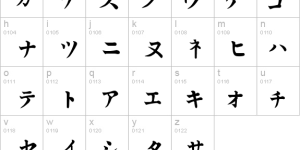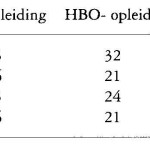My Story ~ 23. For All Walks Of Life, There Must Be A Master
No comments yet “The Royal Australian Army has a motto: if the mind is strong, you can conquer everything.”
“The Royal Australian Army has a motto: if the mind is strong, you can conquer everything.”
I followed my mother’s wish and came to Australia for further study in 1998. I was 15 years old then and now I am 31 … amazing!
I knew nothing and was a hot-headed young man when I came from the northeast part of China to Australia. After learning English for half a year, I began my high school study.
There were not many Chinese people when I first came here. The few who were here were from the generation who were born before 1980 and students who came here in 1989. The social environment was just OK compared with now, probably because the MP Pauline Hanson had just resigned and the One Nation Party still had the upper hand. Though young at that time, I was quite interested in politics so I knew a little about it.
Australian people are basically simple and honest and most importantly, you have to achieve something to win their recognition and become accepted. After all, Australia is an immigration society. I also worked part-time when I was studying. Well, people always say that you can’t say you have worked unless you have worked in a restaurant, so I went to serve dishes and wash plates. I have also worked in the kitchen and at the reception desk, carried furniture for a moving company and worked in a Coles Supermarket as well. I found these jobs were all very easy without too much thinking required. When I first entered college, I majored in law and commerce; I transferred to social sciences in the second year. In social sciences, there are two specific majors – politics and philosophy. I was poor in English so I chose these two majors which require demanding English, I wanted to push myself. Then I was so lucky because I found a law firm, having access to the career of a lawyer. I also worked as an office clerk during my college years.
Then in a late evening in Dec. 2003, an idea took a deep root in my mind:“I want to join the army!” That evening, stars in the southern hemisphere seemed especially bright.
With the excitement of the previous night, I called my mom back in China: “Mom, I’m going to join the army. What do you think?” She was surprised and rather reluctant: “Join the army? In Australia?” I replied with affirmation: “Yes, join the army in Australia!” She hesitated for a moment and said: “Why do you want to join the army? Aren’t you studying now and you want to join the army in a foreign land?” I explained to her: “Since I have moved to Australia, I feel as though I should contribute to this society and don’t want to only do business, tax and dealing.” She seemed to understand me and said: “So you want to contribute in this special way?” I was excited: “Yes, yes!” Mom was touched by my words and agreed with me: “All right! Good boy, do as you like and I’ll support you!” My eyes were shining with light at that moment as if the stars in the night reflected my enthusiasm.
As the idea firmed up, the next stage was preparing for it step by step. I contacted the army after searching the internet and being introduced by friends and in my communication with the army; they got to know of my law major and suggested that I register for the military academy. After thinking it over, I changed my application from soldier to officer and then waited for the first round of interviews, I was quite nervous. Well, the first round was a group interview: some basic examination of English, mathematics and language which was not difficult, everyone could pass. This was followed by a medical check. If had applied to become a soldier, I could have directly joined the army after the first round and medical check, I would have been happy but I was facing the second round – a personal interview. It was not hard at all for someone like me who had gone through numerous interviews when applying to come to Australia, passing it meant you have crossed the first threshold. After the interviews, the representative of Royal Sergeant School would gather all the successful candidates together and arrange a selection from this group. The third round concentrated on the candidates’ coordination ability, independent ability and creation, thus checking whether we were suitable for army life. Of course I passed again. After the final physical fitness test of 15 push-up, 45 sit-ups, and 1120 meters’ long-distance running, I was admitted as a member of military school.
Well, my final enrollment was in Oct. 2006. Yes, there was a small incident. I was very near-sighted so the army required me to do a special test. It turned out that my eye-sight was not good enough for the army and I would be rejected. Having been working for so long and so hard, I didn’t want to give it up so I wrote a letter to Canberra to appeal. It took me a long time but I succeeded. I made a great step towards joining the army. I have my own life and career but I contribute all my spare time to the army and became a serving reserve.
“Get up! Take your ass above the floor and catch up!” After less than two minutes’ rest, the instructor with a red face shouted angrily and rushed to the head of the line. Well, a glimpse of his face told us that he was actually quite satisfied. We arrived at the training camp on Friday evening for the weekend training. It’s said that though Australia is famous in the western world for its care and respect for soldiers and staff, its training is extremely hard. I obeyed the instructor and looked like a doll with 20 kilos of equipment on my back. I received strict training from noon, with the sun over head until night, with stars shining. We kept training and fighting for more than 24 hours a day. I would comfort myself by saying: “Come on, hold in there!”
I was totally exhausted after I arrived home and my mom called me from the northern hemisphere: “Son, the army is hard. How are you getting on?” After hearing mom, my numb legs and brain seemed to recover and the fatigue of training day and night disappeared: “It’s OK mom, don’t worry.” “You poor child, don’t be strong in the face of your own mother. Did you get shouted by the instructor? I know from TV that instructors are all strict and scary by pulling soldiers’ clothes.” I could sense the deep care and worry from her voice and there was a warm current wandering in my heart like the winter jasmine of the March, blowing in the spring wind, itching and acid. “Really, mom. I’m good and strong!” “Well, that’s better. Remember to eat more and rest more.” The whispering warning was just the singing of the night.
Well, physical training was one thing, but for me, the most difficult time came when I got the position of leader. The ability to be flexible, analyze and handle different matters is a must for an officer. I’m a platoon leader and when my direct boss is not around, I may lose a little support. I not only have to conquer the physical difficulty, but also have to show my analytical ability and keep a sober mind to prepare for anything unexpected. I have to calm the soldiers down and arouse their mood. I’m responsibly for anything happens.
“Monitor of class one, two and three gather here right now!” After capturing the first hill and our position becoming exposed, we might be attacked at anytime. So in order to avoid the unexpected stray bullets, I made a quick but firm order: “Prepare to retreat anytime!” I made a concise explanation of our retreat route and later schedule and ordered all the members to be alert. As was expected, an attack arrived within 3 minutes after we retreated and we marched on quickly with skill and discipline: class one in the lead with two and three following, the platoon leaders and sergeants, correspondents in the middle. There was no difference of skin color in uniform. Military rank means obedience. It’s the conscientiousness and trust between us that enables us to pass in this assessment.
From enlisting to graduation, only 10% to 20% of the original recruits go on to complete the training and only about 7% remain on active service within one year after graduation. Many of them just leave. Having gone through marriage, injury and my wife’s pregnancy, I became the platoon leader of a rear-service department in Western Australian military region in Feb. 2013. Yes, I’m one of the 7%.
The most dramatic story happened only recently. It was at the beginning of this year, and I decided to participate in the election for city councilor. There were twenty five candidates, of which only seven could be elected. Many friends offered to help me and we also held a pledging party to collect money for the campaign. The final result was quite interesting. The first place was a senior councilor with 6000 votes who had always been the first one in the past selections. The second one was a candidate of the Liberty Party with support from the government, he got only 200 more votes than I did . I was third with 5358 votes.
What makes things interesting is that there are about 3600 to 3800 Chinese in my community and less than 400 residents from other parts of Asia, like Vietnam, Korea, Japan or Indonesia. In other words, the total population of Asian residents is about 4000. Many friends with different backgrounds supported me during election campaign, including some local residents. I remember a lady asked me when I was campaigning for votes: “What can you do for us?” I replied: “Well, you can see this item which is specifically made for the locals.” Then she told me that her whole family would support me. So with the support of Asians and recognition of local people, I won the third position. This dramatic result is closely related to cultural identity.
Seen from my point of view, survival in Australia is no big deal as long as you work hard and I think most people will agree with me on this. Probably the Chinese have no advantages in language and culture compared with the locals, but I don’t think this is the key point. The key point is your will. Don’t focus on present gains and losses but take a broad view to the future, 5 or 10 or even 20 years from now. Any difficulty during this process is nothing if you succeed in the end. There is such a saying in the Australian Army:” if the mind is strong, everything is easy.”
I have thought about the question of my being Chinese or Australian when I was young at the age of 15 or 20. However, as my knowledge of Australian life deepened, I don’t think it matters where you belong. The crucial point lies in your heart and mind, your position and which part of society you want to live in. I have joined society from a political aspect but there is still a long way to go with so many cultural differences. I’m an immigrant who has the perspective of army experience, it’s unimaginable for a Chinese to be a military officer. So I don’t think it is difficult to communicate with the society if you work hard. But it’s hard for me to go to the bars and discos with local young people. I’m not interested so that makes it difficult for me to integrate with them.
And now, with instruction of mom, care of my wife, I’m a lawyer, a city councilor and a military officer, all at the same time. I continue to receive training every month and deal with the administrative affairs and training the soldiers. But no matter what I become, l will do my job and be responsible for whatever I do. I will be a good son, a good husband and a good father.
You May Also Like
Comments
Leave a Reply









